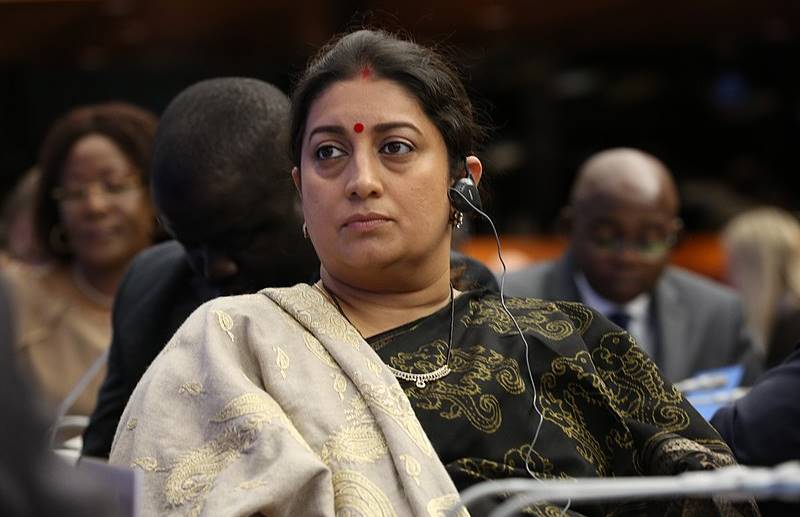From calling the Global Hunger Index (GHI) 2021 report irrelevant to questioning the Food and Agriculture Organisation of the United Nations (FAO), the Union Minister of Women and Child Development Smriti Irani denied all the claims under the recently released GHI Report.
Irani was responding to a question raised in Rajya Sabha by Sujeet Kumar on December 8. Kumar had asked the minister about the issues of child stunting, undernourishment, and child under-five mortality in the country, as stated in the Global Hunger Index Report prepared by ‘Welthungerhilfe’ and ‘Concern Worldwide’. According to the data in the report, India scored 27.5 and is ranked 101 among 116 countries.
While responding to the question, Irani questioned the credibility of these international organisations and their reports. She went on to claim that malnutrition was not a direct cause of death among children under five years of age.
According to the minister, GHI was a flawed measure of hunger. It did not have any relevant data as its sources were from the international agencies that do not have the latest data report of the country.
Also Read: Anaemia in children on the rise in India; 72.7% under-5 kids in rural Madhya Pradesh anaemic
She lashed out at the FAO and said that it conducted opinion polls through telephonic calls. The poll has no links to food availability or dietary energy and disregards government measures, said the minister, who went on to add that the central government provided free food grains to eighty crore people during the economic crisis of the COVID19 pandemic.
Irani also stated, “….countries like Nepal, Sri Lanka, and Afghanistan, it seems from this report, have been unaffected by COVID, which is not true.” According to her, India has sufficient food production and supply, and the FAO report shows a fictional declining trend.
FAO’s estimates on ‘Prevalence of Undernourishment’ in India for the triennium periods 2015-17, 20016-18, 2017-19 are 14.8 percent, 14.5 percent, and 14.0 percent, respectively. The union minister used the latest National Family Health Survey (NFHS) data to point out that in the report, child stunting in India had decreased from 38.4 percent (NFHS-4, 2015-16) to 35.5 percent (NFHS-5, 2019-21).
Similarly, child wasting had decreased from 21.0 percent (NFHS-4, 2015-16) to 19.3 percent (NFHS-5, 2019-21), and the percentage of underweight children has gone down from 35.8 percent (NFHS-4, 2015-16) to 32.1 percent (NFHS-5, 2019-21).
Irani also spoke about Mission Poshan 2.0 scheme to strengthen nutritional content focusing on health and immunity development. Steps include testing in accredited labs, maintaining delivery, and using technology to improve nutritional quality.
She assured that States/UTs are advised to check the quality of supplementary nutrition and conform to prescribed standards laid down under the Food Safety and Standards Act, 2006.
Also Read: ‘Scarce data available on food wastage in India despite ranking 94/107 on Global Hunger Index’



















